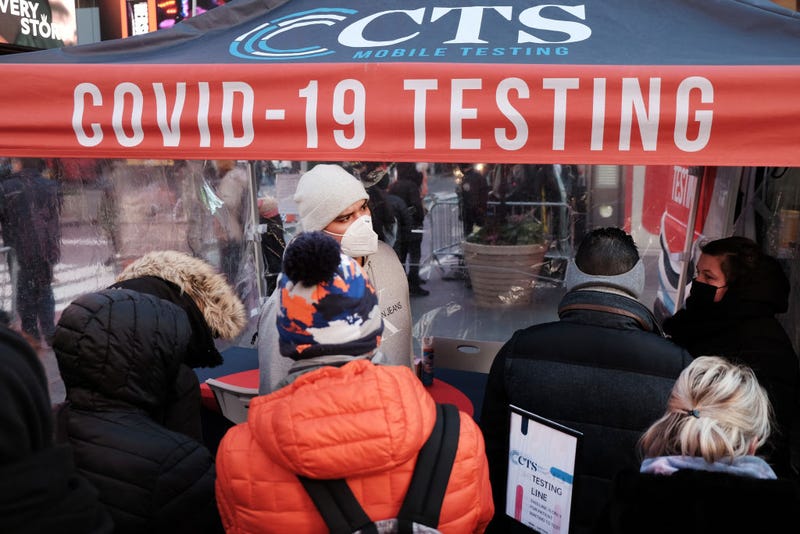
As omicron continues to surge, mask mandates and other COVID-19 safety protocols are being reinstated in an eerie return to what the first months of the pandemic looked like.
While restrictions start returning, people might want to consider investing in a CO2 detector to better measure the ventilation in some indoor spaces.

"It measures carbon dioxide levels which basically tell you how fresh your air is," said Dr. Kim Prather, director of the NSF Center for Aerosol Impacts on Chemistry of the Environment at UC San Diego on KCBS Radio's "Ask an Expert" on Wednesday with Holly Quan and Dan Mitchinson.
"We know very little transmission happens outdoors, so we’re trying to make our indoors as fresh as our outdoors," she said.
As people breathe more in an indoor space, the CO2 level will increase, and people start inhaling more of other people’s breath, "which is where the virus can be found," said Prather.
It helps people be more conscious of these levels, especially in crowded public places. Some areas, like public restrooms, are particularly concerning, as they are typically cramped and poorly ventilated, she said.
"It just makes you more alert of places where the ventilation just is not good enough," she said.
They aren’t necessarily cheap, the one she uses is roughly $200, she said. But because of their usefulness in the long-term, "I look at them as kind of insurance," said Prather.
And as the weather gets colder, more people are gathering indoors than they were before. When gathering outdoors, the CO2 can dissipate more easily. Indoors, the CO2 can collect like cigarette smoke, said Prather.
The particles, once they’re in the air, move quickly. They can hang out in the air in the space for hours, and move between people in a matter of seconds.
It also doesn’t matter if no one is in the room at the moment, the virus is still in the air in there. This is why it is so important to continue masking indoors. "I think that has gotten people," said Prather. But cloth masks and surgical masks aren’t necessarily enough anymore.
Filtration is even more important, she said. Using filters in indoor spaces where people gather, will filter the virus out of the air before people’s lungs do, she said.
A simple HEPA filter is just fine for this purpose, don’t bother with something overtly expensive, which might not even work as well, said Prather.
People can pass the virus along just by breathing, but that goes up even more when people are talking, yelling, and especially when they’re exercising.
"Any sort of exertion will cause the person that's infectious to put out a lot more into the room," she said.
In the coming weeks, it’s likely that more places, schools, workplaces, will return to distancing or stay-at-home protocols as omicron surges and people are traveling for the holidays.

